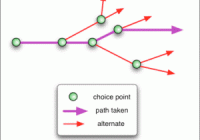Modality, Fatalism, and the Modal Openness of the Future
Back in 2011, I wrote a paper called “The Fivefold Openness of the Future” in which I argued that if the future is causally open (i.e., not wholly causally determined) then there are strong reasons to think that it is ontically, alethically, epistemically, and providentially open as well. In my 2024 book Open Theism I strengthened… Read More »
